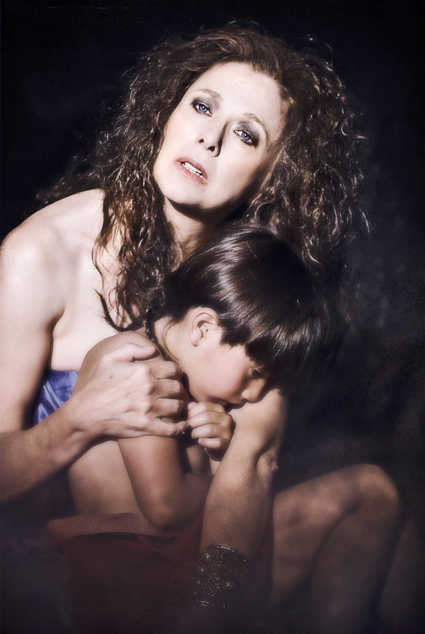For “Medea” director Lenka Udovicki, Euripides’ classic tale of the tumultuous relationship between Medea and her lover Jason resonates as much today as it did thousands of years ago.
“I think it is a proper masterpiece,” Udovicki said. “The depth in which (Euripides) deals with women and lovers and the relationships in the societies ““ on a certain level ““ it’s so contemporary, it’s so much about today’s society.”
First presented in 431 B.C., “Medea” is a story about a scorned woman who is abandoned by her husband for another.
It details the path of revenge she takes as a result of his betrayal.
Udovicki, who will be making her American directorial debut with “Medea,” previously brought the show to the stage in Croatia and finds the work compelling because of the timelessness of its themes.
This time, she has chosen to work from a 1994 prose translation of the text by Frederic Raphael and Kenneth McLeish.
To bring “Medea” to the L.A. stage, Udovicki brought her idea to UCLA Live Executive and Artistic Director David Sefton.
She had previously admired UCLA Live for its presentation of world-class theater, dance and music programs.
“I think it’s really essential for the cultural life of Los Angeles,” Udovicki said. “And for really well-established world-class company and experimental theater from around the world, it’s really broadening the experience and the art approach in California.”
From the initial idea pitch, “Medea” has become the first production to be fully created and produced by UCLA Live, something that Sefton had always meant to do.
UCLA Live is usually in charge of presenting the shows.
But unlike past productions, this time, the program had a part in every step of the creative process, an undertaking that spanned 18 months.
“That’s always been in the back of my mind, as well as inviting pre-existing shows. … The next step for (UCLA Live) would be to go into the whole region of producing our own work,” Sefton said.
“When you do your own production, you are having a set designer, and a costume designer and a composer. You’re just starting from scratch and building every component yourself, every component is your responsibility,” he said.
Yet what sets UCLA Live apart from other productions is the newness and the excitement inherent with such an unfamiliar undertaking, according to Udovicki.
“(For UCLA Live), there’s an excitement in doing it for the first time, and it’s very beautiful and we’re really connected to the project,” she said. “I’m really very happy with the collaboration.”
On reimaging the play for the UCLA stage, Udovicki was able to recruit a multinational crew, including Annette Bening (“The Women”) in the title role, Scottish actor Angus Macfadyen (“Braveheart”), English composer Nigel Osborne, and Los Angeles-based Persian music group The Lian Ensemble.
Television actor Daniel Davis (“The Nanny”), who plays King Kreon of Corinth, said he finds the production to be epic in scale yet simultaneously intimate.
“The sets are enormous, the clothes are enormous, everything about the evening is sort of oversized. And yet, it retains a very strong, very naturalistic, realistic approach in the playing and the emotional level,” he said.
What also sets this production of “Medea” apart is its the intentional contemporary edge.
Instead of setting it in ancient Greece, it has now been placed in a period that is almost modern but with no distinct date.
“When it was originally done, I think (the play) was talking about the world in which the audience lived,” Udovicki said. “And I thought, “˜Why go and step back when I think that everything Euripides is writing about is relevant to today’s world?’ So I then wanted to set it in a contemporary world.”
Davis said he finds that this choice to revisualize the setting of “Medea” contributes to the universality of the play because the story and the situations within it “can take place in any time and in any geography.”
“This play has an extremely feminist stance to it,” he said, offering a modern interpretation to Euripides’ classic. “It is a very modern exploration of female rights, feminine causes and issues, and the treatment of women by men.”
It is a testament to the confidence placed within the production, because “Medea” has been chosen to open UCLA Live’s Eighth International Theater Festival.
It will run from Sept. 23 to Oct. 18 at the Freud Playhouse. Afterward, there is hope for the production to tour, though nothing has yet been verified.
In the meantime, Sefton said he encourages everyone, especially UCLA students, to come see “Medea” for its innovative interpretation of the source material.
Student tickets are also heavily subsidized for every UCLA Live production.
“I hope (students) will come because it’s excellent,” he said. “It’s genuinely original and a genuinely exciting take on a classic text.”
